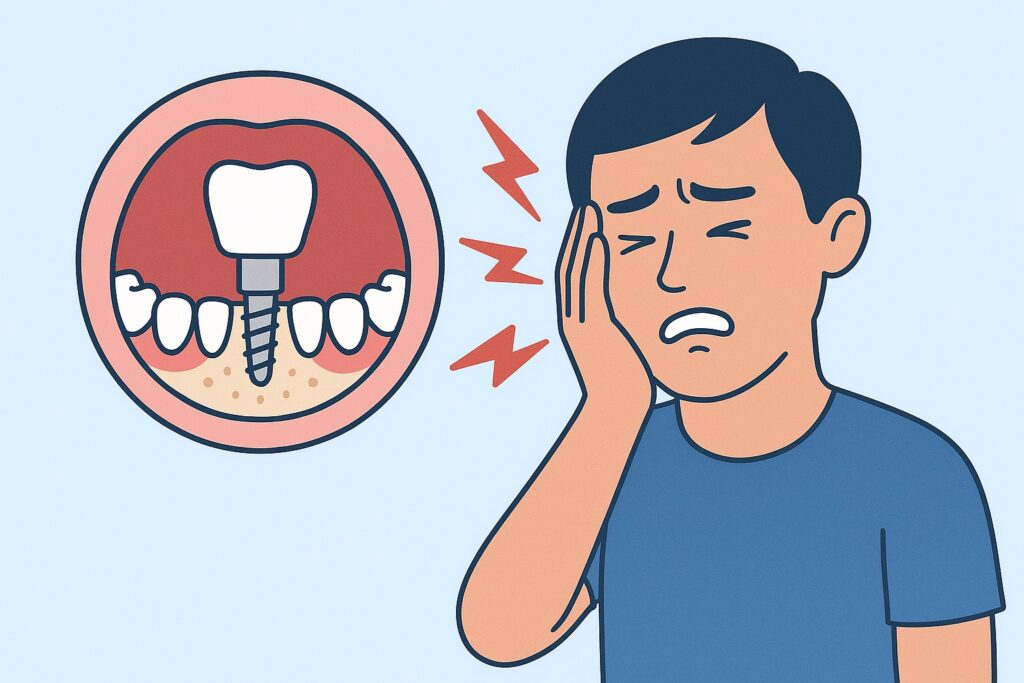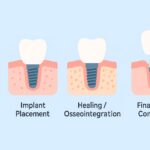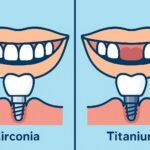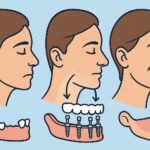Pain after a dental implant procedure can be frustrating, but it’s often a natural part of the healing process. As the body adjusts to the implant and the surgical site heals, mild to moderate discomfort is expected. However, managing that pain effectively—and knowing when it signals something more serious—is essential to ensure a smooth recovery. In this post, we’ll break down practical pain relief options that are both safe and dentist-approved, while also highlighting common mistakes and warning signs to watch out for.
What Causes Pain After a Dental Implant?
Pain following a dental implant is usually part of the healing process. However, understanding the source of that discomfort can help determine whether it’s normal or if there’s an underlying issue.
Normal Healing vs. Problematic Pain
Mild pain, swelling, and bruising are typical during the first few days after implant surgery. This discomfort usually peaks within 48–72 hours and gradually subsides over the next week. Normal pain should be manageable with over-the-counter medication and proper care.
Persistent or increasing pain beyond 7–10 days, however, could point to complications like infection, implant failure, or nerve irritation. If the pain worsens over time instead of improving, it’s important to contact your dentist.
Common Sources of Discomfort
- Bone Integration (Osseointegration): The implant fuses with the jawbone, which can cause deep, aching sensations as the bone remodels around the implant post.
- Tissue Trauma: Surgical manipulation of gums and surrounding tissues often leads to inflammation and soreness.
- Nerve Sensitivity: If nerves near the implant site are irritated or compressed, pain may feel sharp or tingling and may radiate to other areas of the face or jaw.
Timeframe of Typical Post-Op Pain
- First 1–3 Days: Mild to moderate soreness, swelling, and minor bleeding.
- Days 4–7: Pain and swelling should noticeably improve.
- After 7 Days: Pain should be minimal or gone. If not, evaluation is necessary.
Safe Ways to Relieve Dental Implant Pain
Managing discomfort after a dental implant doesn’t require anything extreme—most pain can be controlled effectively with simple, evidence-based approaches. These methods are safe for both short-term relief and supporting long-term healing.
1. Over-the-Counter Pain Relievers
Medications like ibuprofen (Advil, Motrin) or acetaminophen (Tylenol) are commonly recommended.
- Ibuprofen helps with both pain and inflammation.
- Acetaminophen is useful for pain but doesn’t reduce swelling.
Use these only as directed, and avoid combining them without medical advice.
2. Cold Compress Application
Applying a cold compress or ice pack to the cheek near the implant site can reduce swelling and numb the area.
- Use for 15–20 minutes at a time
- Apply during the first 24–48 hours post-surgery
- Always place a cloth between ice and skin to avoid frostbite
3. Saltwater Rinses
Warm saltwater rinses help reduce bacteria and soothe inflamed tissues.
- Mix 1/2 teaspoon of salt in 8 oz of warm water
- Swish gently (don’t spit forcefully)
- Use 2–3 times daily starting 24 hours after surgery
4. Rest and Limited Activity
Avoid strenuous activities for at least 48–72 hours after surgery. Elevated heart rate can increase bleeding and delay healing. Prioritize rest and keep your head elevated when lying down.
5. Gentle Oral Hygiene
Brush carefully around the implant area without direct contact on the surgical site for the first few days. Using a soft-bristled toothbrush and avoiding mouthwashes with alcohol helps prevent irritation.
When Pain Is Not Normal: Signs You Should See a Dentist
While mild discomfort is expected after implant surgery, certain symptoms indicate a problem that requires prompt professional attention. Ignoring these warning signs can lead to complications, including implant failure.
1. Increasing or Persistent Pain
Pain should gradually decrease after the first few days. If it gets worse or remains intense beyond a week, it could signal infection, nerve involvement, or improper healing.
2. Swelling, Pus, or Fever
Swelling that worsens instead of improving, especially if accompanied by pus or white/yellow discharge, points to an infection. A fever over 100.4°F (38°C) is another red flag.
3. Persistent Bleeding
Some bleeding is normal on the day of surgery, but it should taper off. Bleeding that continues beyond 24 hours or restarts days later may indicate trauma or healing complications.
4. Bad Taste or Odor
A persistent bad taste or foul smell from the implant area could mean there’s trapped infection or food debris. This often accompanies other signs like swelling and pain.
5. Loose Implant Feeling
The implant should feel secure. Any sensation of movement or shifting can mean the implant has failed to integrate with the bone and needs immediate evaluation.
What to Avoid When You’re in Pain
Not all remedies or habits help recovery—some can make the pain worse or delay healing. If you’re experiencing discomfort after a dental implant, avoid the following to protect the site and prevent complications.
1. Smoking or Vaping
Nicotine restricts blood flow, slows healing, and increases the risk of infection and implant failure. Smoking also irritates gum tissue and can prolong post-op pain.
2. Hard, Crunchy, or Chewy Foods
Avoid foods that put pressure on the implant area, like nuts, chips, raw vegetables, or chewy bread. These can disturb the healing implant and increase pain or swelling.
3. Applying Heat Too Early
While heat can soothe sore muscles, it should be avoided in the first 48 hours after surgery. Applying heat too soon can worsen swelling and increase blood flow to the area, leading to more discomfort.
4. Home Remedies Without Dental Approval
Many online remedies—like applying essential oils, alcohol rinses, or herbal pastes—are untested and potentially harmful. They may irritate the tissue or introduce bacteria to the wound. Stick with dentist-approved methods only.
5. Skipping Medications or Instructions
Not following the dentist’s post-operative instructions—especially prescribed antibiotics or pain meds—can lead to preventable infections or extended recovery time.
Tips for Faster Healing After a Dental Implant
A smooth and comfortable recovery doesn’t just depend on managing pain—it also comes down to supporting your body’s healing process. These dentist-backed tips can help speed up recovery and reduce the risk of complications.
1. Follow All Post-Op Instructions
Your dentist’s guidelines are based on your specific case. Whether it’s taking medications, avoiding certain foods, or managing oral hygiene, following these instructions exactly is key to proper healing.
2. Maintain Gentle Oral Hygiene
Keep your mouth clean to prevent infection, but be careful around the implant site.
- Use a soft-bristled toothbrush
- Avoid brushing directly on the surgical area for the first few days
- Avoid mouthwashes with alcohol unless prescribed
3. Eat Soft, Nutritious Foods
Focus on soft foods like yogurt, mashed potatoes, eggs, and smoothies during the first week. Nutrients like vitamin C, zinc, and protein support healing. Avoid hot or spicy foods that may irritate the site.
4. Stay Hydrated and Well-Rested
Drink plenty of water and get enough sleep—your body needs both to regenerate tissue and fight off infection. Avoid alcohol, which can slow healing and interfere with medications.
5. Avoid Stress on the Implant Area
Do not chew on the implant side until your dentist confirms it’s fully integrated. Also avoid touching the area with your fingers or tongue.
Conclusion
Pain after a dental implant is common, especially in the first few days, but it shouldn’t be unmanageable or prolonged. With the right care—like using approved medications, keeping the area clean, and avoiding harmful habits—you can reduce discomfort and support faster healing. Knowing the difference between normal pain and signs of a complication is also essential. If pain worsens or unusual symptoms appear, don’t wait—contact your dentist to avoid long-term issues. Proper aftercare not only relieves pain but also helps ensure the long-term success of your dental implant.






